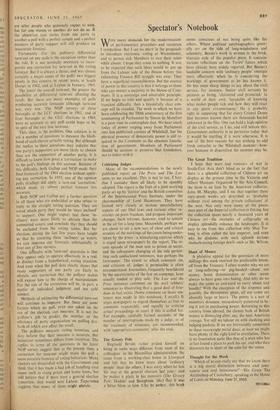The Greasy Pole Reginald Bevins rather prided himself on being
in some ways different from most of his colleagues in the Macmillan administration. He came from a working-class home in Liverpool and felt that he knew more about 'ordinary people' than the others. I was sorry when he lost his seat at the general election last year: and he makes it plain in his memoirs (The Greasy Pole. Hodder and Stoughton, 16s.) that it was a bitter blow to him. Like its author, this book seems conscious of not being quite like the others. Where political autobiographies gener- ally err on the side of long-windedness and solemnity, Bevins's work is written in the brisk, staccato style of the popular press. It contains various reflections on the Tories' future which have already been widely reported. But Bevins's laudable concern with 'ordinary people' emerges most effectively when he is considering the workings of government as he has known it. He has some sharp things to say about the civil service, for instance. Senior civil servants he pictures as living, 'cloistered and protected,' in a world of their own, 'incapable of knowing what makes people tick and how they will react in any given circumstances.' He is probably right in supposing that for every Crichel Down that becomes known there are thousands buried unknown in the files. One can hold a high opinion of the civil service, as I do, and still believe this. Government authority is so pervasive today that it would be startling if it were otherwise. It is one of the best reasons for not wishing to add fresh tentacles to the Whitehall monster—how- ever humane in disposition the monster may be.






































 Previous page
Previous page